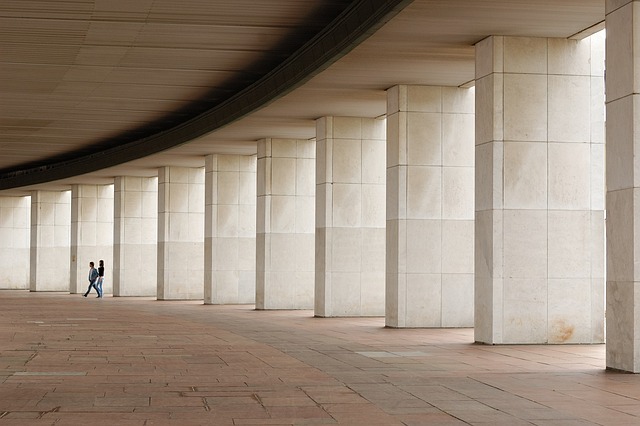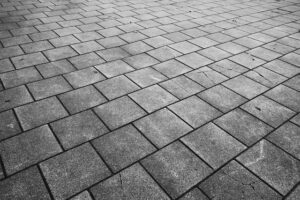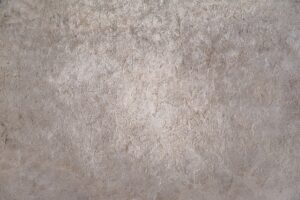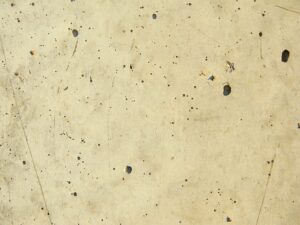Maximizing Energy Efficiency with ICF Systems: Understanding Their Thermal Insulation Benefits
Insulated Concrete Forms (ICFs) are an advanced construction method that significantly enhances thermal performance and energy efficiency in building…….

Insulated Concrete Forms (ICFs) are an advanced construction method that significantly enhances thermal performance and energy efficiency in buildings. These systems consist of interlocking foam blocks filled with concrete, offering a high R-value (R-20 to R-40 or higher) that minimizes heat transfer and maintains consistent temperatures year-round. This leads to reduced reliance on heating and cooling systems, resulting in energy savings and contributing to the sustainability of the structure. ICFs are particularly beneficial for regions with extreme climates, providing both structural strength and superior insulation. They are a preferred choice for eco-conscious and high-performance building projects due to their durability, thermal efficiency, and environmental advantages.
Insulated Concrete Form (ICF) systems have emerged as a pioneering solution in the realm of thermal insulation, offering unparalleled energy efficiency and durability. This article delves into the robust capabilities of ICFs, exploring their scientific foundations, R-value superiority over traditional insulations, and the myriad benefits they bring to building energy efficiency. We will compare ICF systems with conventional insulations, highlighting their cost-effectiveness and long-term savings potential. Additionally, we will examine real-world applications, design considerations for optimal thermal performance, and the environmental impact of adopting this green construction method. From understanding fire resistance to maintaining these structures, this comprehensive guide covers all aspects of ICF technology, ensuring you are well-informed about this innovative approach to sustainable and efficient building practices.
- Unveiling the Potency of ICF Systems in Thermal Insulation
- The Science Behind Insulated Concrete Forms (ICFs) and Their R-Values
Unveiling the Potency of ICF Systems in Thermal Insulation

Insulated Concrete Form (ICF) systems represent a paradigm shift in construction, particularly in the realm of thermal insulation. These innovative building solutions offer unparalleled energy efficiency, effectively minimizing heat transfer both in summer and winter conditions. The high-performance insulation integrated within ICFs, typically made from expanded polystyrene (EPS) or extruded polystyrene (XPS), provides a continuous thermal break between the interior and exterior environments. This results in consistent indoor temperatures with less energy consumption for heating and cooling, leading to significant energy savings over time.
Moreover, ICF systems are designed with interlocking foam blocks that are filled with concrete, creating a structurally sound and thermally efficient wall system. The insulating properties of the ICF material ensure that the walls maintain their temperature longer than traditional construction methods. This attribute is particularly beneficial in regions with extreme climate variations, where maintaining comfortable indoor conditions can be challenging. The durability and resilience of ICF systems, combined with their superior insulation capabilities, make them an ideal choice for both sustainable and high-performance building projects.
The Science Behind Insulated Concrete Forms (ICFs) and Their R-Values

Insulated Concrete Forms (ICFs) represent a sophisticated building system that offers exceptional thermal insulation properties. The science behind ICFs hinges on the high-performance insulating material sandwiched between two structural concrete walls. This core is typically made of expanded polystyrene (EPS) or extruded polystyrene (XPS), which are both highly effective at resisting heat transfer. The result is a structure with remarkable energy efficiency and indoor comfort.
The R-value, a measure of thermal resistance, is crucial in evaluating the effectiveness of insulation materials. ICF systems boast high R-values due to the thick layers of continuous insulation they provide. Unlike traditional stick-built framing, which can have thermal bridges that reduce the overall R-value, ICFs offer a seamless and uniform R-value throughout the wall, typically ranging from R-20 to R-40 or even higher. This continuity minimizes heat loss in winter and heat gain in summer, leading to significant energy savings and contributing to the sustainability of buildings using this system. The combination of durable concrete and high-performance insulation makes ICFs an ideal solution for constructing energy-efficient, comfortable, and resilient structures.
Insulated Concrete Form (ICF) systems stand out for their exceptional thermal insulation properties, a critical aspect for sustainable and comfortable living. The science behind ICFs reveals their high R-values, which contribute significantly to energy efficiency in both residential and commercial buildings. By incorporating ICF technology, construction projects can achieve superior thermal performance, reducing heating and cooling costs while enhancing environmental sustainability. As the building sector continues to seek innovative solutions for energy conservation, ICF systems are a testament to the advancements in eco-friendly construction practices. Homeowners and developers who opt for these systems not only make a wise investment but also play a key role in the global effort towards sustainable development and reduced carbon footprints.







